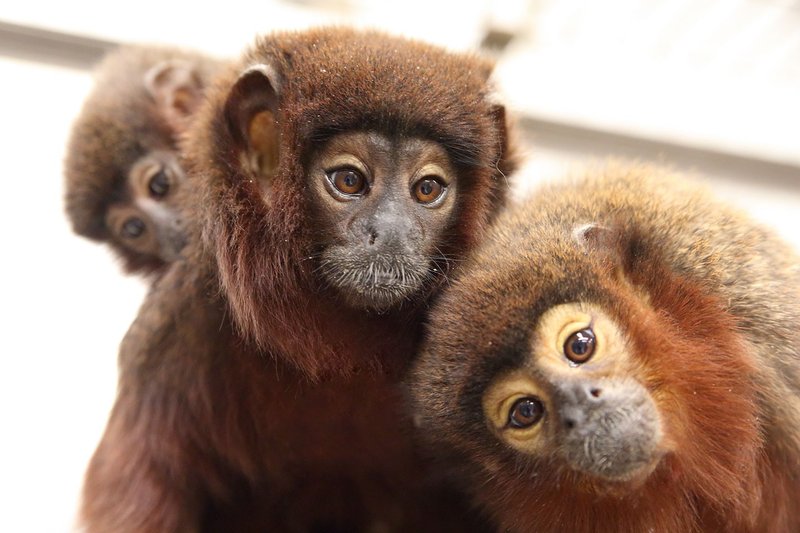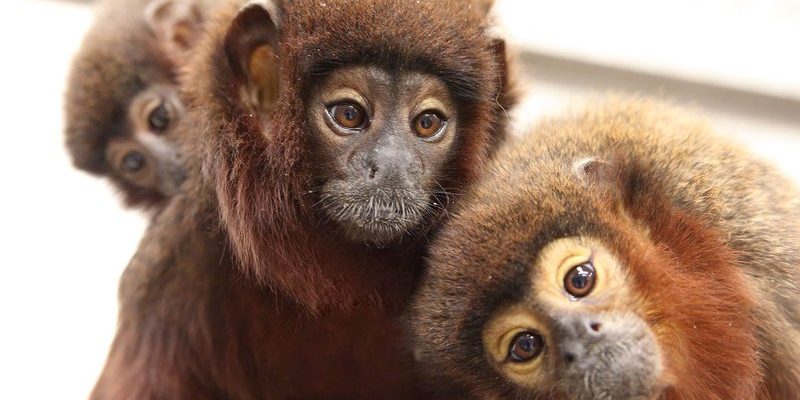
Titi monkeys belong to the family Pitheciidae and are primarily found in the rainforests of South America. You might be wondering why they’re called “titi.” The name comes from their distinctive calls, which might sound like “titi” if you listen closely. Isn’t that adorable? However, there’s a lot more to these monkeys than just their cute name and sweet sounds. From their unique bonding habits to their diet, titi monkeys have some surprising traits that we’ll explore in this article.
Myth 1: Titi Monkeys Are Solitary Creatures
One of the biggest misconceptions about titi monkeys is that they prefer solitude. In reality, these monkeys are quite the opposite! They are known for their strong pair bonds and live in small family groups.
– Social Structure: Titi monkeys typically consist of a mated pair and their offspring. The parents are incredibly nurturing, and you’ll often see them caring for their young together. This close-knit structure provides a sense of security and helps the young learn vital survival skills.
– Communication: Titi monkeys are highly social animals. They engage in various vocalizations to communicate with each other, using a mix of whistles and chirps to express their needs and emotions. This communication is crucial for maintaining their bonds and coordinating activities within their family group.
– Bonding Rituals: Their bonding rituals are fascinating. Titi monkeys often engage in mutual grooming and play, which strengthens their relationships. Honestly, watching them interact is like observing a mini soap opera in the treetops!
Myth 2: Titi Monkeys Only Eat Fruits
Another common myth is that titi monkeys are strictly fruit-eaters. While fruits do make up a significant portion of their diet, they are actually omnivorous and enjoy a variety of foods.
– Diet Diversity: Titi monkeys munch on fruits, but they also eat leaves, flowers, seeds, and small insects. This varied diet helps them get the necessary nutrients to survive in their lush rainforest habitat. You might find them carefully selecting ripe fruits from branches, showcasing their impressive foraging skills.
– Nutritional Needs: The combination of fruits and protein sources, like insects, is essential for their health. Just like we need a diverse diet, titi monkeys thrive on a well-rounded menu, ensuring they have the energy to swing through the trees and stay active.
– Food Sources: The availability of food can vary based on the season, so these monkeys are experts at adapting to their surroundings. If fruits are scarce, they’ll turn to leaves or other vegetation. Nature provides, and titi monkeys know how to make the most of it!
Myth 3: Titi Monkeys Are Not Intelligent
You might think of monkeys as mischievous, playful creatures, but for some reason, titi monkeys often get overlooked in terms of intelligence. Let me explain why that’s a myth worth debunking.
– Problem Solving: Titi monkeys display impressive problem-solving skills. They can figure out how to access food that’s out of reach, demonstrating their ability to adapt and learn from their environment. You can’t underestimate how clever these little guys are!
– Tool Use: Although they may not use tools like some other primates (like capuchins), titi monkeys have been observed using their environment creatively to obtain food. This adaptability is a sign of intelligence that shouldn’t be ignored.
– Learning from Each Other: These monkeys have a knack for social learning. Young titi monkeys often watch their parents and siblings to learn essential survival skills—like finding the best food sources. This learning process shows a level of cognitive function that reflects their intelligence.
Myth 4: Titi Monkeys Are Not Endangered
Sadly, there’s a belief that titi monkeys are thriving and not at risk. This couldn’t be further from the truth. Habitat loss and environmental changes pose significant threats to their survival.
– Deforestation: The primary threat to titi monkeys comes from deforestation for agriculture and urban expansion. As their forest homes disappear, so do their sources of food and shelter. It’s a tough world for them out there!
– Conservation Efforts: Thankfully, many organizations are working hard to protect these monkeys and their habitats. Conservation initiatives focus on reforestation and sustainable land practices to help preserve the ecosystems that titi monkeys depend on.
– Awareness: Raising awareness about the plight of titi monkeys can help. Educating others about the importance of conservation can make a real difference in protecting these charming creatures.
Myth 5: Titi Monkeys Are Aggressive
You might hear that titi monkeys can be aggressive, but this is often a misunderstanding of their behavior. Let’s clear that up.
– Defensive Behavior: While titi monkeys can be loud and assertive when defending their territory or young, they are not inherently aggressive. Their vocalizations, like barking or screaming, serve as warnings to potential threats rather than acts of aggression.
– Social Dynamics: Within their family groups, titi monkeys exhibit affectionate behaviors, like grooming and cuddling. They prefer to avoid conflicts and will often use communication rather than aggression to resolve issues.
– Interacting with Humans: If you come across a titi monkey in the wild, it’s essential to respect its space. They can become frightened or stressed if approached too closely, leading to defensive behaviors. Give them room, and they’ll likely ignore you.
Titi monkeys are delightful creatures with a range of fascinating traits that defy common misconceptions. From their strong social bonds and diverse diets to their surprising intelligence and the challenges they face in the wild, there’s much more to these monkeys than meets the eye. It’s crucial to educate ourselves about titi monkeys to appreciate their role in the ecosystem and support their conservation efforts.
So next time you hear a myth about titi monkeys, you can confidently set the record straight. They may be small, but they hold big importance in our world—and understanding them better means we can help ensure they thrive for generations to come.

